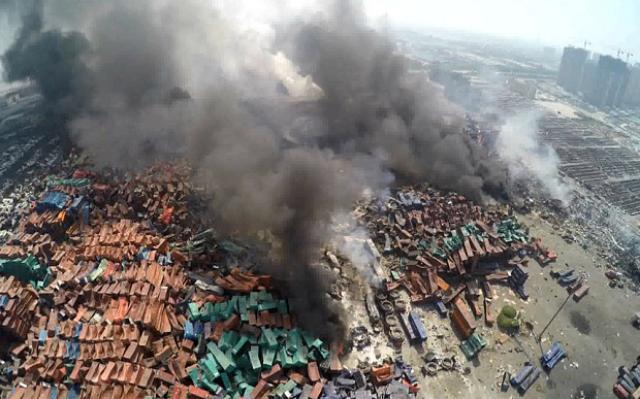 The explosion that occurred at the Chinese Port of Tianjin on August 12th and resulted in the killing of over 145 people is still unraveling itself. Government authorities have managed to arrest 11 municipal officials and port executives on charges of corruption. Zheng Qingyue, Tianjin Port Holdings Co., Ltd president and Wu Dai, Tianjin Municipal Transportation Commission’s chief officer along with a number of safety officials are currently being charged.
The explosion that occurred at the Chinese Port of Tianjin on August 12th and resulted in the killing of over 145 people is still unraveling itself. Government authorities have managed to arrest 11 municipal officials and port executives on charges of corruption. Zheng Qingyue, Tianjin Port Holdings Co., Ltd president and Wu Dai, Tianjin Municipal Transportation Commission’s chief officer along with a number of safety officials are currently being charged.
According to the prosecutors, the said 11 officials displayed a fair share of negligence while carrying out their supervisory responsibilities regarding Riuhai Logistics Co. Ltd, which is the company that was determined to have transported and stored illegal hazardous chemicals at the port. Accusations towards the safety officials claim that they failed to properly regulate and supervise Riuhai in regards to illegal operations and safety infractions.
Riuhai was opened back in 2011 and operated for a period of several months without having the necessary licenses. Officials arrested three of the executives of the company within a couple of days after the explosion. Chinese police officials have also initiated investigations aimed at Tianjin Zhongbin Haisheng, a company that is suspected of helping Riuhai receive some of its permits.
The explosion served as an example of breaches in regulations regarding the proximity of chemical storage warehouses to the local residential areas. Along with the warehouse that exploded, Riuhai is also responsible for operating two warehouses that are in close proximity to schools, residential areas and hospitals. Chinese safety regulations forbid for chemical storage warehouses to be within one kilometer of the above-mentioned zones.
Tianjin’s Port Group issued statements denying all alleged ties to Riuhai last week. It commented that it bared no responsibility for overseeing the operations of the latter. There are various reports, however, pointing out that the Port Group provided its approval for the warehouse facilities of Riuhai as it usually does with companies that operate within the borders of the port structure.